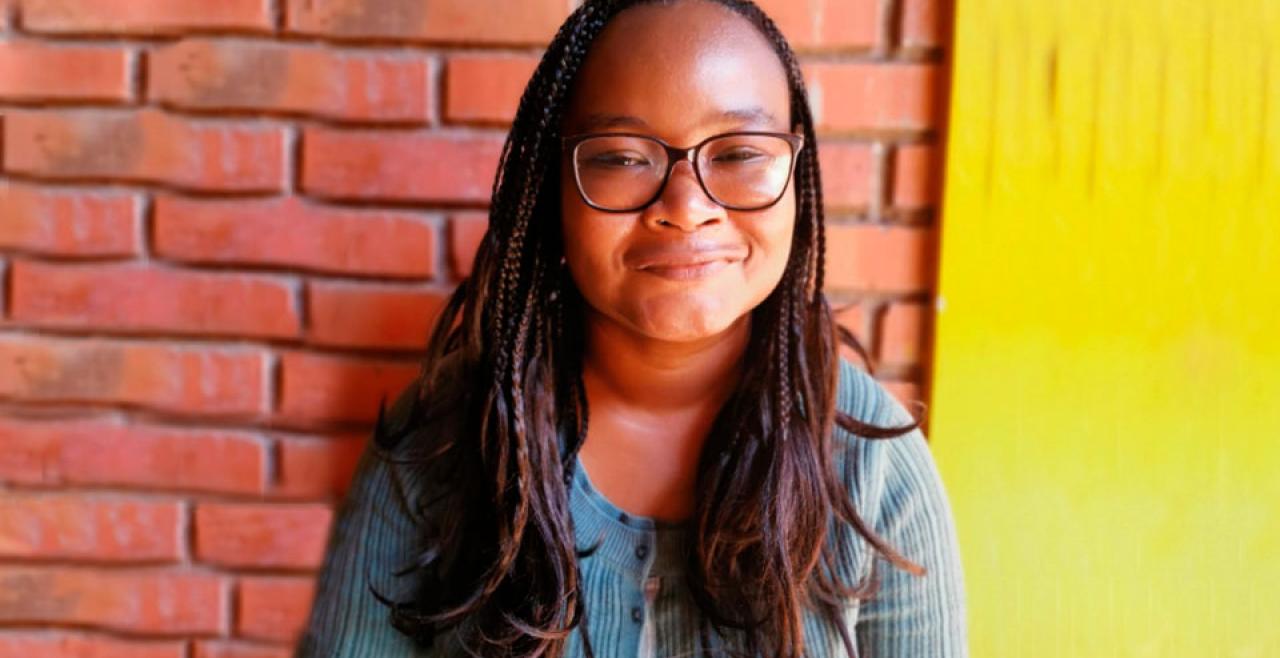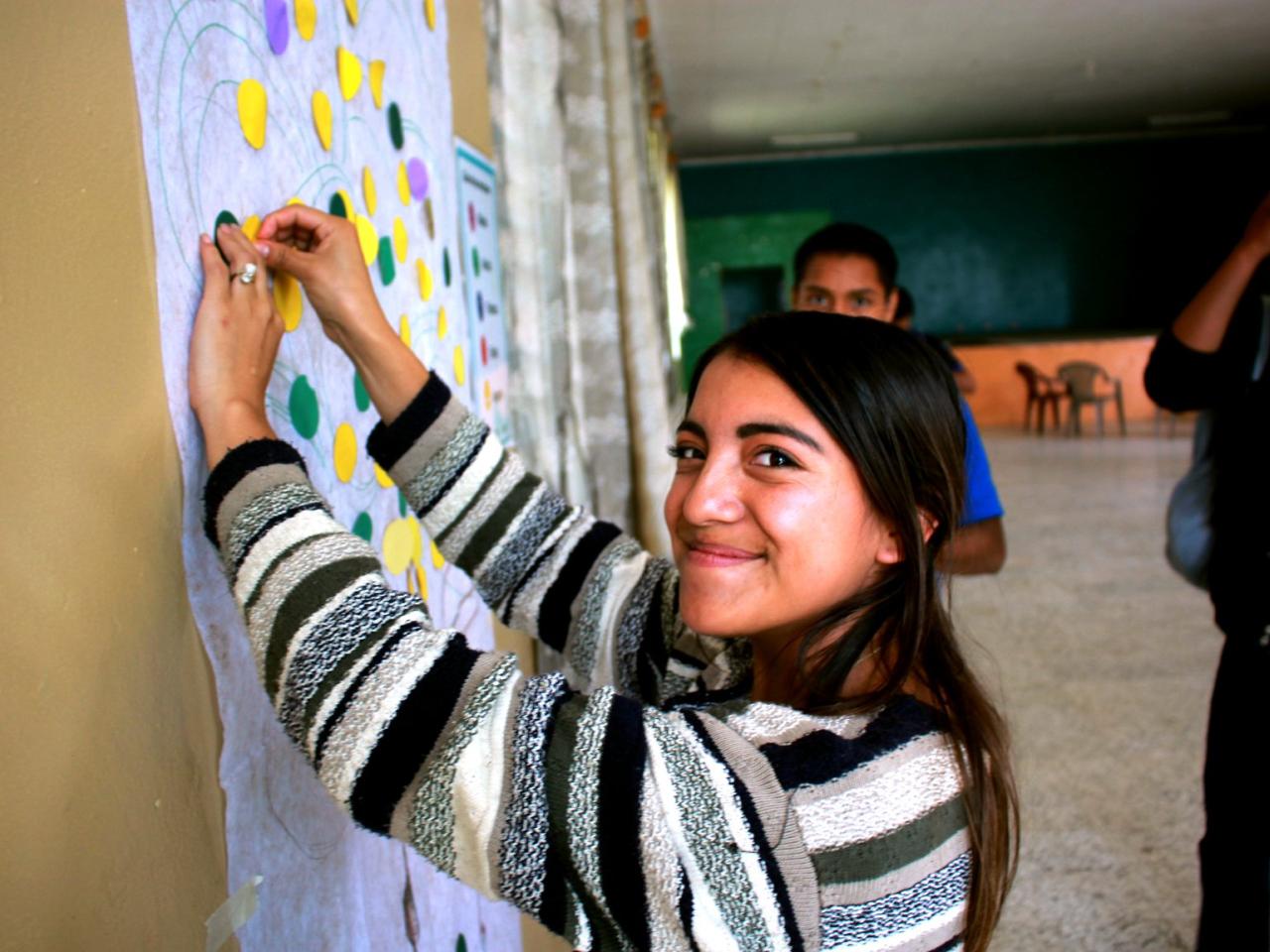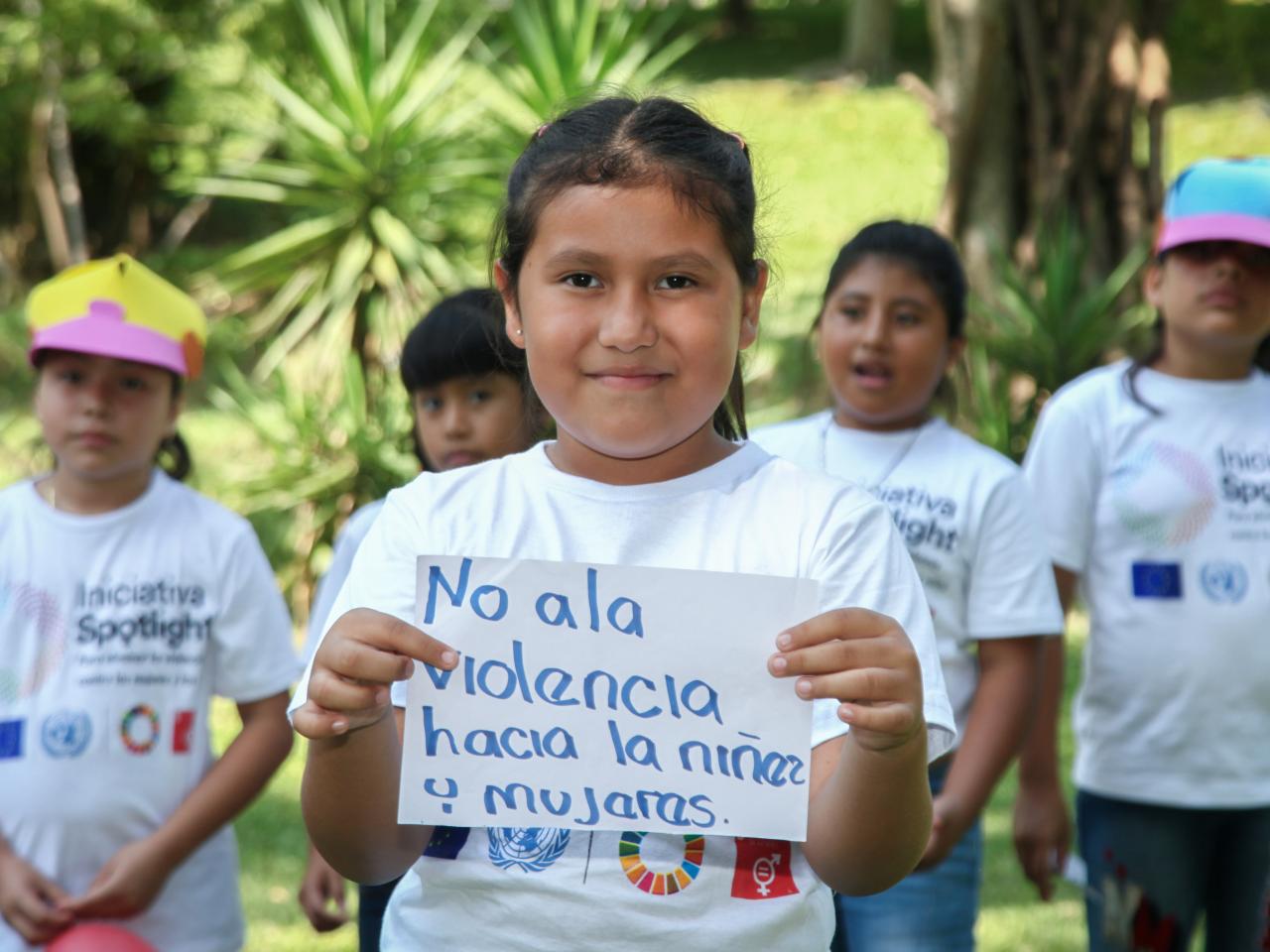How women filmmakers are flipping the script in Honduras

TEGUCIGALPA, Honduras - Spotlight Initiative is working with the Honduran Filmmakers Collective to finance and highlight the work of female filmmakers who are shining a light on gender-based violence, particularly those who face intersecting forms of discrimination. Marissa Gabriela Solano’s short film ‘Negrita’ deals with the harassment and discrimination faced by Afro-Honduran women and was commissioned as part of the 16 Days of Activism against Gender-based Violence.
Watch 'Negrita' above.
Below, Ms. Solano discusses the film and explains how cinema can help create real-world change.
What was the inspiration for your short film?
My inspiration has been the different testimonies that I have heard and my own experience. I have had to live the experience portrayed in the film, where bosses or superiors comment on black women’s sexuality when it’s not relevant or appropriate for a work space.
What kind of discrimination do Afro-Honduran women face?
Little or limited access to opportunities. No matter how capable you are, the moment you appear for an interview, the opportunity vanishes.
In Honduras, very few black women hold corporate positions within a company or public service positions. Black women are often put in a role that’s “behind the scenes” because they supposedly don’t meet the standards required to represent a company. You constantly must prove yourself, because your ability is always questioned. Sometimes you won’t be taken seriously in a work space, maybe because of some physical aspect - because of the shape of your hair, for example, because they say it's not formal. There are always comments about black women’s bodies, about our sexuality, about how we exercise it. It is uncomfortable because these are private issues that should not be relevant.
There is a lot of harassment. We suffer a lot from the objectification of our bodies.
"I felt it was important to share my experience with other young, Afro-Honduran women so that they know that they have rights, that no one can violate them, that they do not have to remain silent."- Marissa Gabriela Solano, filmmaker
When did you become conscious of this discrimination?
I was walking down the street and someone yelled through the window of their car at me. I am always getting catcalled by drivers who yell things through their window, many of them sexual, vulgar and in bad taste. I don’t know what satisfaction they get from yelling at me. In some way I think they feel superior to me and that they have the right to tell me what they want.
How can cinema contribute to changing norms and values?
Cinema is the most important, powerful tool, because it can reach many people and it is very easy to disseminate. It is a way of communicating how we feel about the situations that happen to us. It is a way to reflect, make changes, inspire. It’s a very important means of activism and an effective way to communicate positive messages to change the way we think. I felt it was important to show all the harmful things that have been normalized and share my experience with other young, Afro-Honduran women so that they know that they have rights, that no one can violate them, that they do not have to remain silent.
"Cinema is the most important, powerful tool. It is a way to reflect, make changes, inspire... We must work with our empathy to stop normalizing violence." - Ms. Solano
The film addresses many issues, including racism, gender inequality and sexual harassment. What would you say to people who think that sexual harassment is not a "serious" form of violence?
People who say this are not bad, but they come from a position of privilege in which they have not had to live the experience. As a black woman, I live it daily. We must work with our empathy to stop normalizing this type of violence.
What do you hope the public will learn from your film?
I want girls not to be ashamed of their blackness, to know that they are beautiful the way they are. We should be proud to be black. No one should disrespect you for it. I wish that years ago when I was a child, someone had told me this.
I want the audience to learn that there are stereotypes that should no longer be promoted, that we are diverse people. I want them to learn that our ability is not determined by our skin colour or by the shape of our hair. We can perform professionally in any space and we should be given the opportunity to realize our potential. Don’t be guided by misconceptions. Above all, we must respect each other because we all deserve respect.
At this crucial moment when the issue of racism is so relevant, it is important to raise our voices, to say “no more!” so that future generations have access to opportunities to study, to work, to make art, to be entrepreneurs. Only then will we live in a more equitable world for all women and girls.
This interview has been edited for length and clarity. As told to Pauline Sfez.


